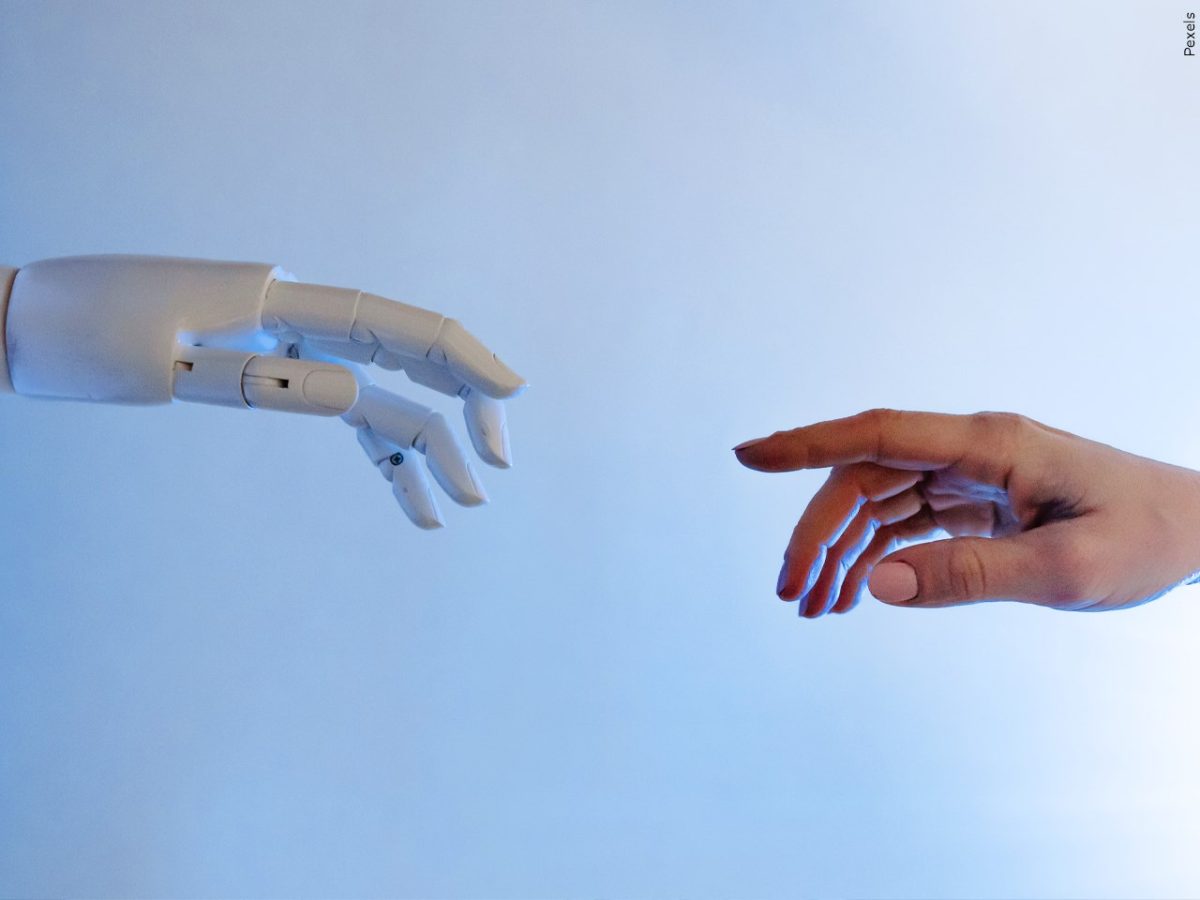The Noorda Engineering, Applied Science and Technology Building hosted Noreen L. Herzfeld, a professor of science and religion at Saint John’s University, as part of Weber State University’s Peterson Speakers Series on Oct. 31.
Herzfeld’s presentation, titled “The Artifice of Intelligence: Divine and Human Relationship in a Robotic Age,” focused on human/AI relationships and how they might evolve.
One aspect of human/AI relationships Herzfeld brought up was elderly and child care.
Human birth rates are slowing down. It is possible that robots will be needed in the future to care for children and elders. Herzfeld questioned how that might affect care received and relationships with loved ones.
The topic of romantic and sexual relationships between humans and AI was a prevalent topic during Herzfeld’s presentation.
AI love is something that can be safe and personalized, but it leads to questions of whether it’s ethical. Questions like these are brought up with apps such as Replika, an AI chatbot that mimics talking to a real person.
Herzfeld said one common fear with romantic chatbots is that you don’t know who is on the other side. There have been cases of chatbots being used in phishing schemes.
Herzfeld also talked about how human/AI relationships parallel divine/human relationships. She brought up three different views of how humans were made in the image of God.
The oldest idea says that human reason and logic mirror God’s. The next is that humans are a representative of God. The third interpretation says that our relationships with others are how we are in the image of God.
Herzfeld said the progression of understanding the concept of humans in God’s image parallels the thinking behind how humans create AI in their image. First, giving AI the ability to reason, then giving them the ability to work and finally trying to make them lovable and capable of holding relationships.
Herzfeld then brought up Swiss theologian Karl Barth’s four key points of an authentic relationship and claimed AI cannot fulfill all four points. Barth’s four points are being able to look the other in the eye, speak and hear the other, help each other, and do it gladly.
Herzfeld’s analysis is that it is possible to to look at the “eyes” of a robot or AI, but a screen or plastic eyes may feel slightly off. Programs such as Siri and Cortana can be spoken to and can speak back. AI can be programmed to aid others. However, AI can never accomplish the fourth point, doing it gladly, because it doesn’t have emotion.
Herzfeld cited American psychologist Jerome Kagan’s four aspects of emotion: perception of a stimulus, a change in feeling that is sensory, appraisal, and response. Herzfeld said an AI or robot could be made to achieve all aspects aside from a change in feeling, and thus are unable to feel emotion.
Herzfeld’s reasoning is that an AI could perceive an issue, appraise how to handle it and respond, but without a physical shift, such as a kick of adrenaline when in danger, it is not possible to have an emotion, only an imitation of one.
















